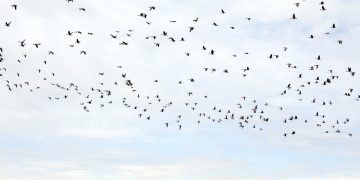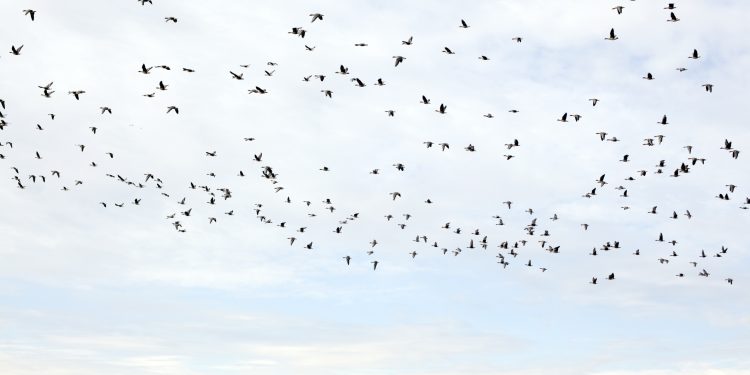Ever wonder what all the birds are chattering about up there in the treetops?
Perhaps their feathers are ruffled over being named after slave owners, Confederate generals and “misogynists.”
That’s evidently the conclusion of the American Ornithological Society, which announced Wednesday that it is renaming dozens of birds whose monikers have been deemed “exclusionary and harmful.”
“We need a much more inclusive and engaging scientific process that focuses attention on the unique features and beauty of the birds themselves,” AOS president Colleen Handel proclaimed in a statement.
AOS executive director and CEO Judith Scarl added, “Exclusionary naming conventions developed in the 1800s, clouded by racism and misogyny, don’t work for us today, and the time has come for us to transform this process and redirect the focus to the birds, where it belongs.”
More than 100 species will be renamed, The New York Times reported.
So wave bye-bye to the Scott’s oriole, named for U.S. Civil War Gen. Winfield Scott, who fought against slavery for the Union side, but earlier in his career supervised the relocation of Native Americans, according to the Times.
Previously on the chopping block, according to the Daily Mail, was the McCown’s longspur, named after Confederate Gen. John P. McCown and now known as the thick-billed longspur.
Even the Audubon’s shearwater — named for possibly the most famous birder of them all, John James Audubon — is going away.
Sure, Audubon was a talented artist and naturalist who went to great lengths to document the birds found in 19th-century North America. But as a slave owner and opponent of abolition, Audubon’s political views now disqualify him from having a species named for him.
Audubon is described by the National Audubon Society as “a genius, a pioneer, a fabulist, and a man whose actions reflected a dominant white view of the pursuit of scientific knowledge.”
“His contributions to ornithology, art, and culture are enormous, but he was a complex and troubling character who did despicable things even by the standards of his day.”
The push to rename many of our feathered friends has had ornithologists all a-twitter for several years.
In 2020, a petition to change the offending bird names was sent to the AOS, arguing that they “commemorate men who participated in a colonial, genocidal, and heavily exploitative period of history.”
“These antiquated common names are harmful, unnecessary, and should be changed in the interest of a more welcoming ornithology,” the petition said.
So will the birds be renamed after current politically correct heroes?
Nope. Just to be on the safe side, the society determined it would restyle all species named after people.
The new practice — which only affects the common English names, not the Latin-based scientific names — will draw on the habitat or characteristics of the birds themselves.
For example, according to the Mail, the Audubon shearwater’s new name “will most likely be a reflection of its identifiable rounded wings or its geographical home near the coastline.”
This article appeared originally on The Western Journal.

























 Continue with Google
Continue with Google